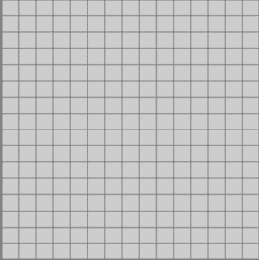A simple fast graphing tool
What does it do?
It makes a graph of the incoming numbers.
How do I use it?
Give the bird the numbers. By default each line or bar is 100 units wide (enough for 10 bars). The default image of a bar is a thin multi-coloured line that you may replace with what you like.
Note that the numbers should be between 0 and 1000. If your data isn't a good match for this range then you can flip the tool over and change the operation from '*1' to whatever you need. E.g., *100 if your data is between 0 and 10. Note if your data is between 900 and 1000 you can have an operation like '-900; *10' that will scale and shift your data to be viewed best.
You can put this tool on the back of another image rather than the graph paper
it uses by default.
Note if your installation doesn't permit ToonTalk to extract images for this tool then just use a rectangle for the bar and graph paper background.
How does it work?
It is surprisingly simple. It adds the bar to the picture and then sets it width to a constant and its height to the next incoming number. The y (up/down) is set to 0 and the x (left/right) is set to a number that is incremented by the width for each number. It stops when x reaches 1000 (the right edge). You can then press space while pointing to it to start it again where it'll display the next set of data on top of the current set. If you want another graph then you can replace the box of a fresh graph with this graph.
What can I use it for?
Making nice graphs that change as data arrives.
Here's a nice example using this tool:
This displays a bar graph of the inverse squares scaled by 1000. I.e.
1000/4 + 1000/9 + 1000/16 + ...
Click to see the Java source code.
Click to load this into ToonTalk.

